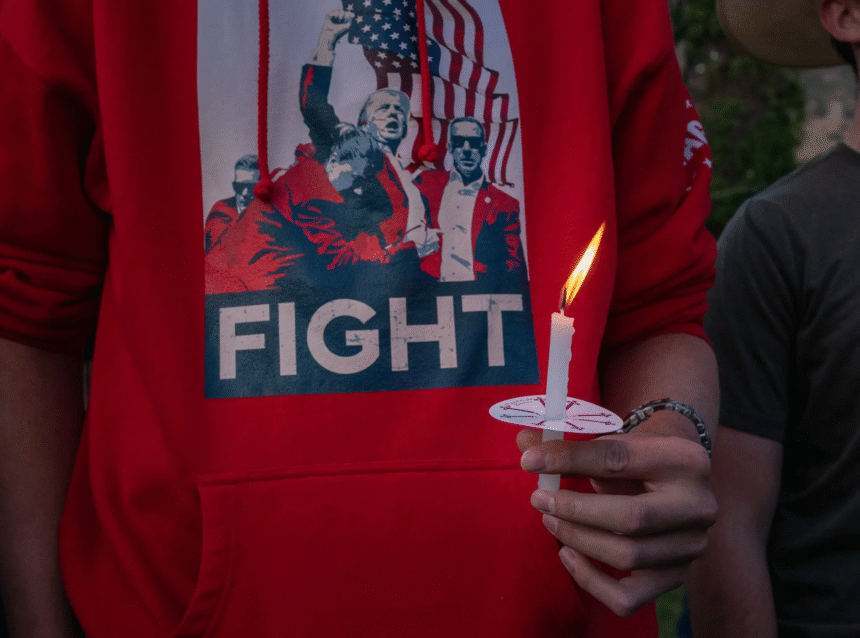The first few minutes of President Trump’s Oval Office address after the assassination of Charlie Kirk last week followed the conventional presidential playbook. He praised the victim, asked God to watch over his family and talked mournfully of “a dark moment for America.”
Then he tossed the playbook aside, angrily blaming the murder on the American left and vowing revenge.
That was stark even for some viewers who might normally be sympathetic. When Mr. Trump appeared later on Fox News, a host noted that there were “radicals on the right,” just as there were “radicals on the left,” and asked, “How do we come back together?” The president rejected the premise. Radicals on the right were justified by anger over crime, he said. “The radicals on the left are the problem,” he added. “And they’re vicious. And they’re horrible.”
Mr. Trump has long made clear that coming together is not the mission of his presidency. In an era of deep polarization in American society, he rarely talks about healing. While other presidents have typically tried to lower the temperature in moments of national crisis, Mr. Trump turns up the flames. He does not subscribe to the traditional notion of being president for all the people. He acts as president of red America and the people who agree with him, while those who do not are portrayed as enemies and traitors deserving payback.
“The left has declared war on America,” Stephen K. Bannon, Mr. Trump’s former chief strategist and a leading voice in the MAGA movement, said in a text message on Saturday. “Trump is a wartime president now focused on eradicating domestic terrorists like ANTIFA,” Mr. Bannon added, referring to the antifascist movement.

The notion of Mr. Trump as a wartime president in a war against some of his own people speaks to just how different his presidency is. Campaigning last year to reclaim power four years after his re-election defeat, Mr. Trump dispensed with the usual bromides about national unity, and instead declared that the biggest threat to the United States was “the enemy from within.”
He vowed “retribution” against those who in his view have betrayed him or the country, and he has spent the first eight months of his second term exacting it against Democrats, wayward Republicans, estranged allies, law firms, universities, news outlets and anyone else he considers disloyal or excessively liberal.
He sees a country riven into two ideological and political camps: one that supports him and one that does not. He governs accordingly. In recent days, he has vowed to order troops into cities run by Democrats, while sending money in the form of disaster relief to states run by Republicans.
This viewpoint reflects Mr. Trump’s own history and personality, born out of an us-against-them, winners-and-losers approach to life that carried him through decades in business, reality television and eventually politics. He is not comfortable as a comforter. He prefers a fight; he needs an enemy. And with Democrats fractured and leaderless, he is positioning himself as the scourge of an American left that has, he contends, grown radical beyond recognition.
“This has been consistent from the beginning,” Jeff Shesol, a former speechwriter for President Bill Clinton, said of Mr. Trump’s escalatory reaction to the assassination of Mr. Kirk. “It’s not a tactic. It’s not a stratagem. It’s who he is and how he sees the world, in this Manichaean way. The left — the ‘radical left’ as he always wants to call it — is evil, and this is another opportunity to establish that, no matter what the facts are.”
Image

Plenty of left-wing voices online have fueled the divisions. Within hours of Mr. Kirk’s death, Americans of all stripes began pointing fingers at each other, even before a suspect had been caught or any motivation had been firmly determined. Mr. Trump and other allies of Mr. Kirk’s, who were distraught at the senseless killing of a 31-year-old rising star on the right they knew and liked, expressed roiling indignation at comments that gave the impression of cheering or rationalizing the murder of someone over political views.
Most national Democratic elected leaders joined Republicans in denouncing the killing and calling for an end to the political violence that has erupted across the ideological spectrum in recent years. But while Gov. Spencer Cox of Utah, a Republican, made a pained plea for Americans to come together, the president expressed anger, declaring that “we just have to beat the hell” out of “radical left lunatics,” though he also made a point of urging “nonviolence.”
“I’m afraid the ship has sailed, at least for now, over an era in which politicians could heal a nation with their words,” said Ari Fleischer, who was White House press secretary on Sept. 11, 2001, when President George W. Bush faced his greatest crisis and pulled the nation together against a common foreign enemy.
Mr. Fleischer, who supports Mr. Trump, said the current president has been the target of so much hatred that no one would credit him for a calm response, were he to offer one. “The vitriol against President Trump from the left is so deep that there is not a syllable, word, sentence or paragraph Donald Trump could say that would mollify them,” he said. “Trump’s mantra is ‘fight, fight, fight,’ so no one should be surprised by his reaction.”



Leave a Reply